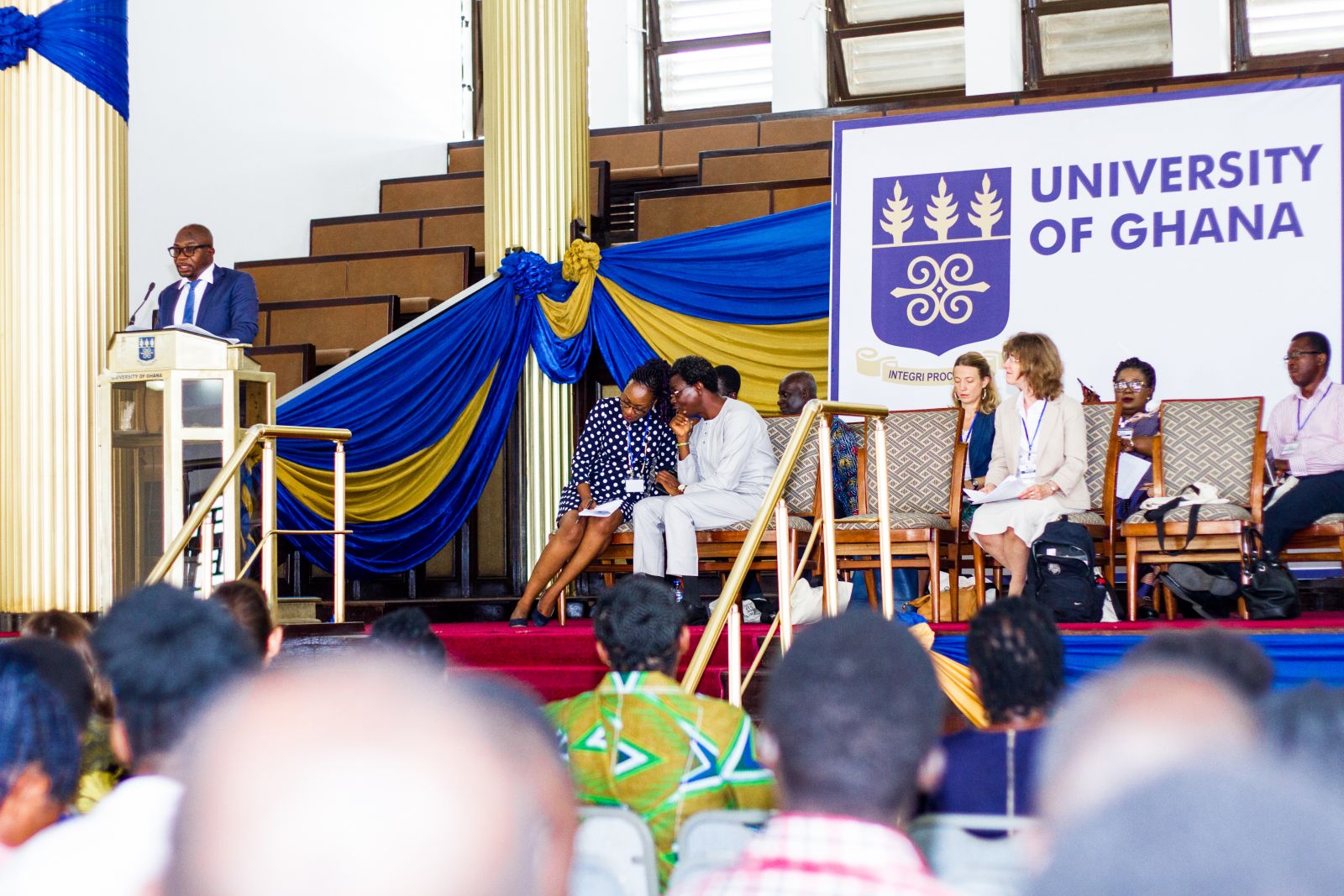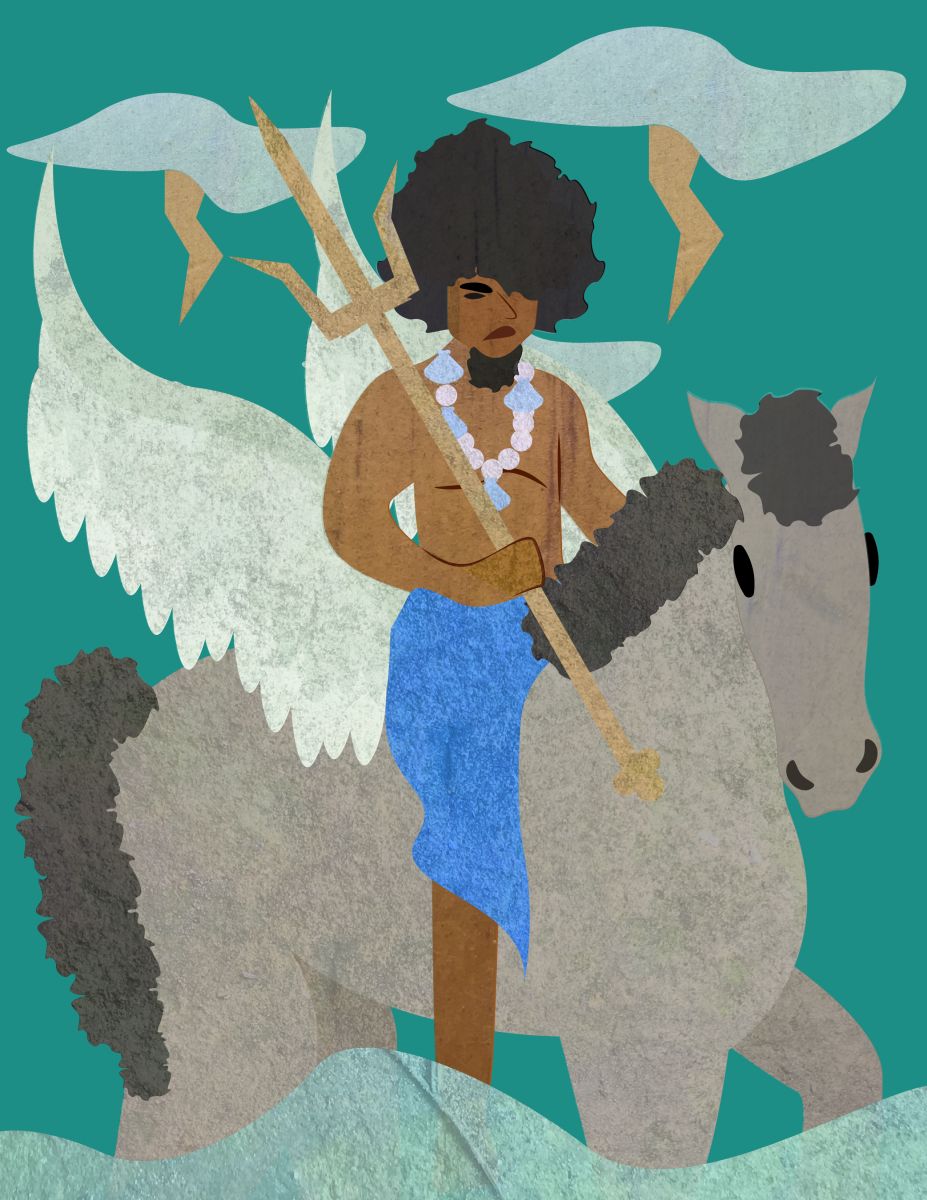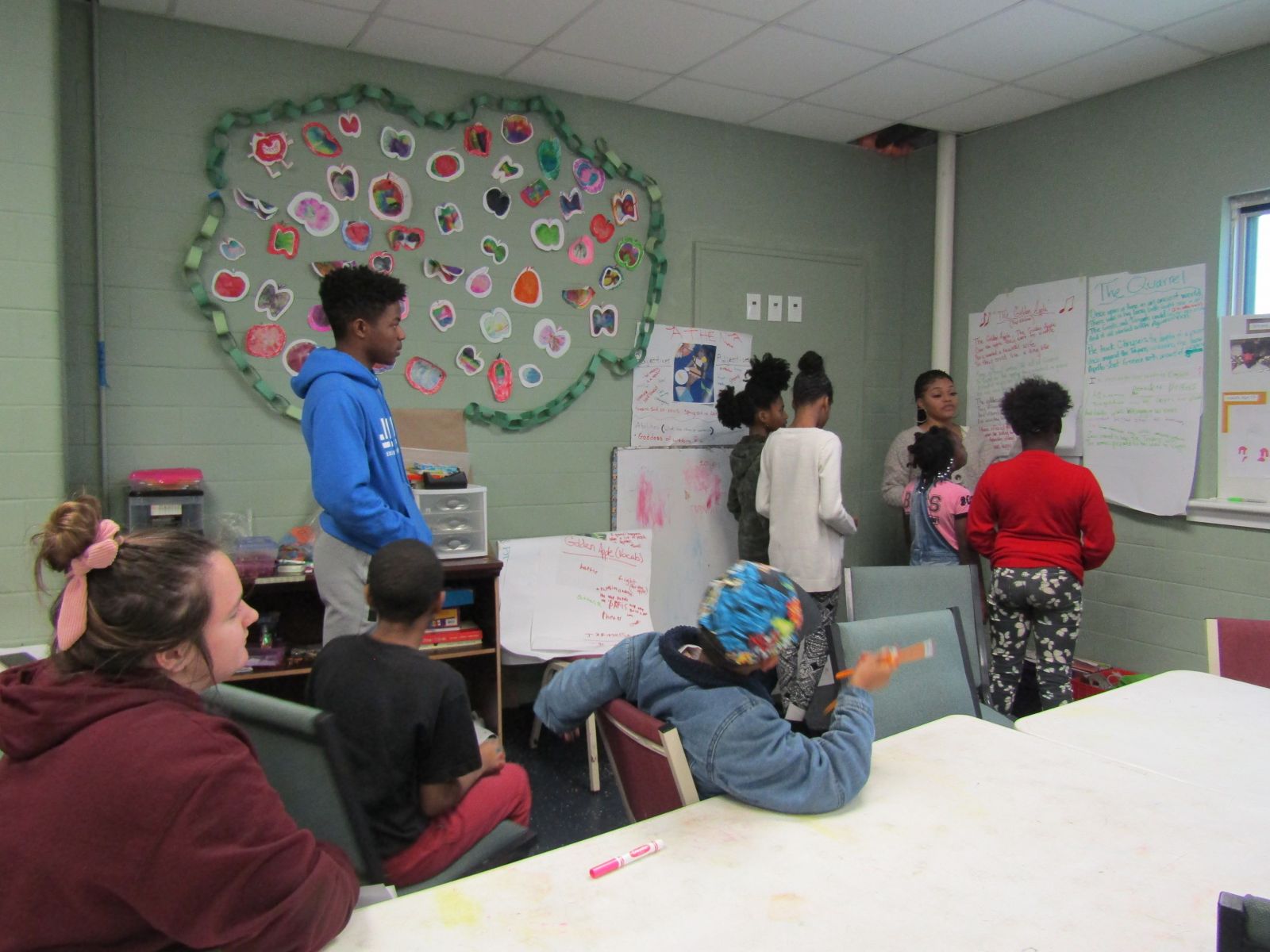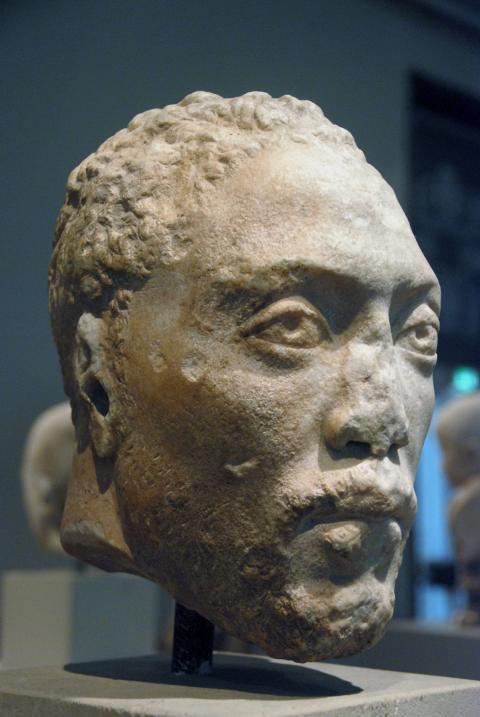The new Classics Everywhere initiative, launched by the SCS in 2019, supports projects that seek to engage communities worldwide with the study of Greek and Roman antiquity in new and meaningful ways. As part of this initiative the SCS has been funding a variety of projects ranging from reading groups comparing ancient to modern leadership practices to collaborations with artists in theater, music, and dance. In this post we honor Black History Month and focus on programs that support and encourage the engagement of black communities globally with the study of classical antiquity.
Advocacy, growth, and inclusion are the three new strategic priorities that the SCS is committing to for the immediate future. The following programs, funded by Classics Everywhere, exemplify these priorities by seeking out and fostering the perspective of black students, scholars, and artists in the study of classical antiquity and its legacy: an event celebrating the release of a new book on classical reception, a public panel in Ghana, and the creation of a new curriculum for young African Americans in New Orleans.
To honor Black History Month and the release of the new book Classicisms and the Black Atlantic (OUP, 2020), Michele Valerie Ronnick, Professor of Classics at Wayne State University, has organized a presentation of four public talks taken from the new book at the Detroit Public Library (DPL) on February 29. The book calls attention to ways in which Black people have engaged with the cultural legacies of classical antiquity and offers reflections on the place of classicism in issues of race and racism along the Atlantic coast from Canada to Trinidad. One of the book’s editors, Ian Moyer, Associate Professor of History at the University of Michigan and a speaker at the presentation organized by Ronnick, noted:
One of the central goals of Classicisms and the Black Atlantic has been to re-shape and re-mediate classics by amplifying the voices of black intellectuals and artists who have long been making and remaking classics in the African diaspora in the Americas and Europe. It is also a challenge to racist and exclusivist visions of classical culture, and we want both aspects of this book to be part of a wider public conversation.
In one of the book’s chapters, for example, “Andromeda Africana: Contemporary Painting and the Classical Black Figure”, Jamaican, Ghanaian, Jewish, and British artist Kimathi Donkor describes his journey in painting “The Rescue of Andromeda” which appears on the cover of the book. Donkor became particularly interested in the figure of mythical Andromeda, an Ethiopian princess who was saved from a sea monster by the Greek hero Perseus, while he was completing his doctoral work on ‘fugitive’ African identities. To his surprise he then found out that the British Collection of the UK’s Tate art museums included a number of artworks that depicted Andromeda as white. “Realising that the ‘white Andromeda’ represented a long-lasting and occasionally remarked upon racial tradition in western art history and popular culture,” Donkor explained, “I decided to unmask this hegemonic norm by creating a new series of images in which Andromeda was depicted as a black woman.”

Figure 1: Kimathi Donkor, The Rescue of Andromeda, 2011. Image used by the artist’s permission.
At DPL, which is the 4th largest public library system in the USA and a frequent supporter of events related to issues of race, four speakers will give their own perspectives on the importance of the history of the Black Atlantic. Moyer will first present an overview of the project. Heidi Morse, another of the book’s editors and Lecturer in the Department of Afroamerican and African Studies at the University of Michigan, will talk about black artists working in Rome, such as Edmonia Lewis. Ronnick will then discuss the first book of translations from Latin and Greek made in this hemisphere by a person of African descent, namely Henry Alexander Saturnin Hartley’s Classical Translations, which was published in Nova Scotia in 1889. To close, Patrice Rankine, Professor of Classics and Dean of the College of Arts and Sciences at the University of Richmond, will direct the audience’s attention to the 21st century with a talk on classical studies and college during the era of #BlackLivesMatter.
On the east side of the Atlantic, Michael Kwadwo Okyere Asante, a PhD candidate in the Department of Ancient Studies at Stellenbosch University in South Africa, is also eager to stimulate a discussion about the role of classical antiquity for people of African descent – this time among academics and non-academics in sub-Saharan Africa. Okyere Asante, who holds a B.A. and M.Phil. in Classics from the University of Ghana, is conducting research not only in ancient Greek political thought and its reception in African political thought, but also in the teaching of Latin and Greek in Ghanaian schools. He is organizing a public panel discussion on the future of Classics in the university education in Africa during a conference on “Global Classics and Africa: Past, Present, and Future” which will take place at the University of Ghana on October 8-11, 2020. Participants in the public panel include professors and scholars of Classics from Ghana, Nigeria, Uganda, and South Africa, as well as from the UK and the United States. SCS funding is helping with travel costs for the panelists, as it is crucial to have wide and varied representation for this discussion.
According to Okyere Asante, the Greek and Latin curriculum in secondary schools in Ghana has received a great blow in the last few decades:
Public perception of classics in sub-Saharan Africa has mainly been negative, with the view that classics is ‘colonial’ and ‘elitist’ and is of no use as a subject of study in a modern African university. Despite decades of classical scholarship in sub-Saharan Africa showing African connections through reception and comparative studies, the idea that Classics is ‘colonial’, ‘western’ and irrelevant to the African enterprise is still very present in the minds of the public.
After the 1960s, when many African countries were gaining their independence and wanted to liberate themselves from colonial mentalities, many African leaders embarked on a policy of “Africanization”, reforming their educational system in order to focus on Africa’s lost glories, its civilizations and history.[1] Since then the study of classical antiquity lost its place in the curriculum and has been primarily studied in some public universities. Many classicists, however, are not pleased with the negative perceptions that have characterized classical studies in universities in Africa. As a consequence the panel organized by Okyere Asante during the Classics conference in Ghana offers an opportunity “to engage the public on the changes that have occurred in the field since the colonial period, explicate the contributions of classics to human development and education, and anticipate the changes classics in Africa should consider in order to become sustainable.” Okyere Asante also hopes that given today’s context of decolonization and globalization, the panel will lead to a revision of the classics curriculum in sub-Saharan Africa in a way that will reflect the reality and needs of the 21st century.

Figure 2: Scholars at the Classics conference in Ghana in October 2019. Photo credit: Classical Association of Ghana.
Creating a classics curriculum that helps cross racial and cultural borders is also the goal of Nyansa Classical Community in New Orleans, LA. Angel Parham, Nyansa’s co-founder and executive director, has been working on providing kids of African heritage with a classical education during afterschool programs for the past 5 years. Her current goal is to develop a new curriculum, which will include the study of Greek myths and Homer’s Iliad and Odyssey, and to integrate it into the curriculum of public school, afterschool, and summer programs in and out of Louisiana. SCS funding supports the compensation of the Greek myth curriculum’s main writer.

Figure 3: Image of Poseidon created for Nyansa’s Greek myth curriculum by artist Josslyn Littles. Image reproduced with Nyansa’s permission.
The Greek myth component is central to the Nyansa curriculum. The curriculum also includes Biblical stories, as well as quotes and stories of important historical figures. The Biblical stories are treated as literature, so children of all faiths can benefit from their study. For Parham, the reason to focus on classical texts is twofold. First, they provide important moral lessons and an ideal introduction to important issues of our society. Children find these stories interesting and amusing and through them they are willing to discuss sensitive topics. Second, Parham believes that these stories are part of a common fund of cultural knowledge that everyone should have access to. Gaining such a literary and cultural foundation is like “a gateway into an exciting thought world”, she explains. And this is particularly important for children in the community that Nyansa serves, as many of them attend public school systems that do not focus on high quality literature.
Each unit in Nyansa’s newly developed curriculum asks children to think about select virtues and vices that are central to human behavior. It includes simple retellings of Greek myths accompanied by beautiful illustrations, as well as hands-on learning activities such as flash cards, discussion guides, rap songs and suggestions for art, craft, and writing projects. One unit, for example, focuses on the virtue of forgiveness and the vice of revenge and aims to help children think consciously about their actions and handle conflicts in productive ways. It first examines stories about Poseidon and his vengeful nature – his reaction to the blinding of Polyphemus and to his loss in the contest for the name of Athens, and then moves on to the stories of Jacob and Esau, and David and Mephibosheth. It concludes with quotes and episodes from the lives of Nelson Mandela and Saint Maria Goretti. The material connects the mythical past to the present and underlines the choices we have as humans and the control we have over our actions.
Figure 4: Students learning about the story of Paris and the Golden Apple through a rap song. “It makes me feel inspired”, said Isaiah, age 12. Photo by Angel Parham.
Whether directed to children, scholars, or the general public, the programs discussed above celebrate engagement with classical antiquity by people of African descent and heritage, and bring the fruits of that engagement to the attention of broader audiences – including classicists who may be primarily familiar with ‘white’ receptions of ancient Greek and Roman culture. In a time when many institutions are called upon to argue for the value of their Classics programs, to include the perspective and experiences of black communities in the study and reception of Classics suggests the potentially broad appeal and diverse types of relevance the field may have as it evolves.
The next round of applications for Classics Everywhere grants is due May 15, 2020 and you can apply here.
Header Image: Bust of Memnon, Altes Museum - Berlin - Germany 2017 (CC-BY-SA 4.0, José Luiz Bernardes Ribeiro).
[1] See Mngomezulu, B. R. (2012). Politics and Higher Education in East Africa: From the 1920s to 1970. Bloemfontein: SUN Press; and Nkrumah, K. (1973). Revolutionary Path. London: Panaf Books.



